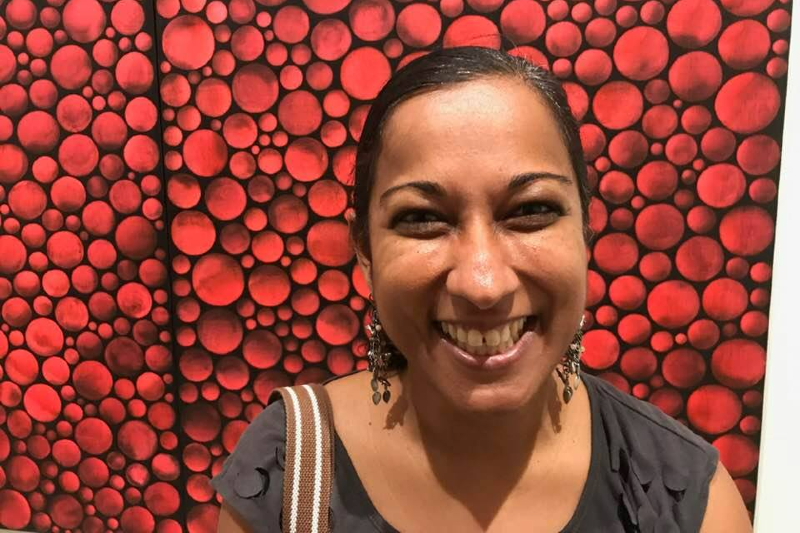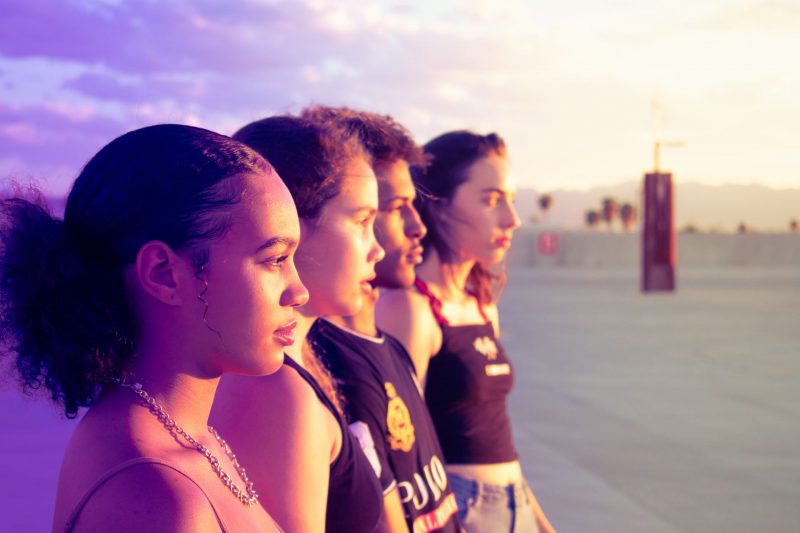
Three outstanding international academics are joining the University of Bristol after being awarded the prestigious Royal Society Wolfson Visiting Fellowship. One of them is the renowned geoscientist Professor Aradhna Tripati from the University of California (UCLA). Aradhna is passionate about fostering diverse voices in sciences and is the founder of the Center for Diverse Leadership in Science at UCLA. We talked to her about her journey into geoscience, diversity and inclusion in the field and her main research priorities during her time at Bristol.
You are a renowned climate scientist and a highly respected geochemist. What inspired you to become a scientist?
When I was growing up, I didn’t see myself as a scientist, or think that was what I was going to do. But in college, I had some amazing science professors who connected to their students as people, and were human-centred and relational in their interactions. They also approached teaching science by discussing how it related to our lives. In particular, there were classes in geology that emphasized human-environment relationships that I found fascinating. I also appreciated that, as an earth scientist, you could learn and work at the intersection of many disciplines, including chemistry, physics, math, biology, engineering, and social justice. I also had the benefit of studying at a university with a diverse group of students who had very different pathways through life and to higher education. This showed me that we are all born scientists and that our curiosity for the natural world brings us so much joy, but many who wish to pursue scientific education or employment face barriers and can be pushed out or pulled away.
In light of COP26, what do you think are the main research priorities today for a healthier and fairer planet?
Marginalized communities, and the Global South, are underserved by current research. We need to have researchers who represent the full breadth of diversity that exists in the population at large. At the same time, we need to cross traditional disciplinary boundaries with our research training and practice. For example, we must integrate social sciences with climate science. From wetlands restoration for flood mitigation, to design of green infrastructure and monitoring, to cultural burns for fire mitigation, to capacity building within communities, we need to engage in research across traditional disciplinary boundaries.
Universities need to support community-identified research priorities, and community-based participatory research. Departments and institutions should increase support to applied research and training opportunities, including community-based work. Institutions should embrace local community engagement, and recognize and value Traditional Knowledge systems, community knowledge, and community practitioners, with holistic, transdisciplinary, and multi-disciplinary approaches to translate research into action.
To do this, we need to train diverse researchers to ethically engage with communities. Deep and long-term investments to facilitate building relationships with sustaining community partners would support the effective co-creation of research that will reduce climate vulnerabilities while retaining resilience.

In 2017, you founded the Center for Diverse Leadership in Science at UCLA, which has the slogan “Our Planet Needs Everyone’s Imagination.” What does the center do to champion diversity in sciences and why is it so important to do so?
The Centre for Diverse Leadership in Science is the world’s first academic centre focused on diversity, equity, and innovation in environmental-related fields. Our work implements evidence-based best practices from social science research. We have more than 200 fellows, and 50 higher education and community partners. Our mission is to empower a diverse community of people to address environmental and technological challenges, while moving towards a more just and inclusive world.
Human and environmental systems are being severely stressed by climate change, pandemics, and inequality. Our shared challenge is to create space for more people who will bring different backgrounds, experiences, and perspectives to become the innovative and transdisciplinary climate scientists that we need. With effective training they can contribute their expertise, including in relational and systems thinking, to an array of sectors and to policymakers. They have a critical role in motivating collective action through their ambassadorship to the diverse communities they come from, and in inspiring future generations of people to be connected to science.
What are your main research interests and how will they be applied during your time at Bristol?
My research examines Earth’s climate evolution and the impacts of environmental change on different systems. A major emphasis of my work involves using geochemically-translated environmental reconstructions to resolve how and why climate changes in different regions. For this research, my lab harnesses state-of-the-art chemical tracers with a focus on carbonate clumped isotope geochemistry.
I plan to use our datasets in concert with simulations from the globally-leading climate modelling group at the University of Bristol to demonstrate the power of paleoclimate data assimilation in improving model predictions of temperature, rainfall, and drought. The University is a global centre of excellence in both paleoclimate and climate science, with a shared commitment to equity, diversity, and inclusion. Bristol is unique in translating knowledge of past climates over a range of different time intervals to improve simulations of future climate with a breadth of approaches.
This will be an exciting opportunity to forge collaborations relating to the cutting-edge research of paleoclimate and bring the tools and expertise I have in a new emerging area of geochemistry!
What are you most excited about doing when you get here?
I am very much looking forward to spending time in conversations about science outside when the weather is warm. As a woman of colour with family from the Fiji Islands and India, given the colonial history of the city and the role it had in the slave trade, I hope to engage with scholars in this area and explore areas of cultural significance.
The two other Royal Society Wolfson Visiting Fellows joining the University are Professor Belinda Wilkes, Senior Astrophysicist at the Smithsonian Astrophysical Observatory, and Professor Ken McLaughlin, Department Chair and Professor of Mathematics at Colorado State University. Click here to learn more about the Royal Society Wolfson Visiting Fellows.
